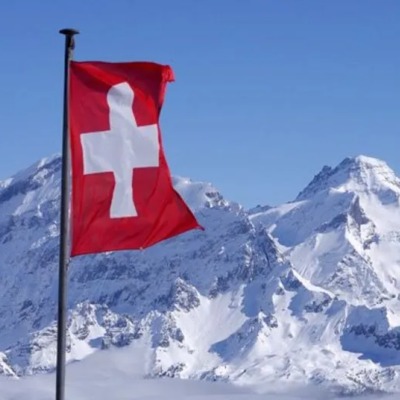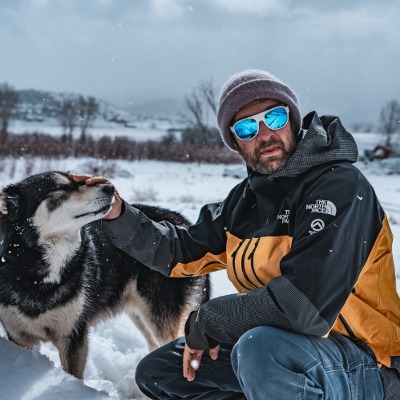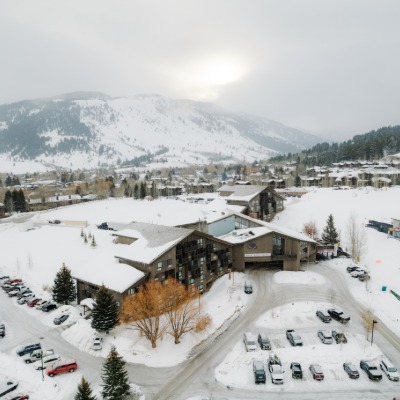Association Of German Lift Co’s Held Annual Press Conference In Munich

At the start of the winter season, the Association of German Cable Cars and T-bar Lifts held its annual press conference in Munich. The board and management provided information about balance sheets and news and gave an outlook on the upcoming winter season.
The cable car companies were consistently satisfied with the season so far: 6.9 million visitors used the cable cars for a relaxing break in summer 2023. That is 4.5% more than in the previous year. The sunny and mild October once again resulted in peak visitor numbers at the end of the summer season. Since 80% of the rides run in summer and winter, many of the companies invested in year-round offerings such as mountain bike parks, hiking trails and family offerings such as marble runs, fun parks and mini golf courses.
In addition to the expansion of leisure activities, funds are being used for the barrier-free conversion of mountain and valley stations, disabled-accessible toilet facilities, energy management, renovation work and technical equipment.
This year a total volume of around 10 million euros was invested.
The cable car companies are ready to go:
- Thanks to the current onset of winter, we will be opening on November 30th. in the Allgäu and in the following days in the Bavarian Forest, the Black Forest, Upper Bavaria and the Sauerland some ski areas. Demand is high: “Season ticket sales are going very well, interest in winter sports is unbroken,” says Antonia Asenstorfer, managing director of the Alpen Plus ski areas and VDS board member. “With attractive offers and discounts, we want to ensure that families can still afford skiing and share unforgettable experiences in the mountains.”
- Asenstorfer also advocated traveling by public transport in order to keep the carbon footprint as low as possible: “We think of the three pillars of sustainability as a whole. From an economic point of view, the cable cars create jobs, from an ecological point of view, the cable cars have always run on electricity with zero emissions, and from a social point of view, cable cars represent lived inclusion, as they enable everyone to have relaxing mountain experiences.”
Optimized use of resources and lived sustainability
in cable cars as an adaptation strategy in times of climate change Climate change is a fact and, with its weather extremes, also affects winter sports and the cable car industry. In order to continue to offer the more than 27 million German winter sports enthusiasts recreational opportunities, the ski areas take their responsibility for nature very seriously and pursue a variety of adaptation strategies.
Cable cars continue to invest in technical developments and sustainable use of resources. As pioneers of e-mobility, they have always run on electricity with zero emissions. Currently, 74% of companies are already using green electricity from renewable energies. In addition, cable cars themselves generate renewable energy through hydropower and photovoltaics. The use of resources is optimized through efficient snowmaking measures such as precise snow depth measuring systems and snow depots. Fueling the snow groomers with environmentally friendly biofuels saves 90% of CO2. Since a large part of the CO2 emissions of a ski day, namely 78%, are caused by the arrival and departure of guests, many operators offer free transfers, ski buses or combination tickets to reduce individual transport.
Cable cars also adapt to the situation with a wide range of alternative offers on the mountain. They offer the whole family relaxing nature experiences with and without snow in summer and winter with mountain bike routes, hiking trails and adventure trails. The electricity consumption for winter operation of the systems and technical snowmaking is comparatively low at 42.5 GWh: the half-yearly standby loss in German households is over a hundred times higher at 5000 GWh. “We take our responsibility for the sustainable use of existing resources very seriously. Our concern is to practice winter sports with a clear conscience,” says Henrik Volpert, board member of the Oberstdorf Kleinwalsertal mountain railways and 1st deputy board member of the Association of German Cable Cars.
VDS presents new study:
Value added multiplier through cable cars increased from 5.1 to 5.3 German cable car companies make an important contribution to creating an attractive and inclusive working and leisure world. They are an indispensable economic factor in tourist-oriented regions.
Cable cars enable mountain experiences for everyone and create jobs even in structurally weak areas. In this way, you prevent emigration and environmental pollution caused by long commutes for commuters. In his current study, Dr. Bernhard Harrer, head of the German Economic Institute for Tourism at the University of Munich (DWIF), examined the overall economic effects of cable car users.
Based on the income effects, this results in a multiplier of 5.3. Translated, this means: one job at the cable car creates or secures a total of 5.3 jobs in the region. Since the last survey, this value added multiplier has increased from 5.1 to 5.3. Both direct (e.g. hoteliers, restaurateurs, retailers, service providers) and indirect service providers benefit from the value added (wages, salaries and profits) through the use of the cable cars (Construction industry, craftsmen, tax consultants, advertising agencies).
With a share of 83.5%, the majority of spending by overnight guests in winter goes on accommodation, meals, shopping and the use of other services in the area of the cable cars. Only 16.5% is spent on the cable car ticket. “We are very pleased that, with our efforts towards sustainability, we can demonstrably live up to our social, ecological and, through value creation, our economic responsibilities,” said Matthias S Tauch, board member of the Bayerische Zugspitzbahn Bergbahn AG and first chairman of the Association of German Cable Cars .
Fact sheet
- Association of German Cable Cars and T-bar Lifts eV
- Number of German cable cars: 207
- Number of German drag lifts: 1240
- Winter season 2022/23:
- First admissions/Skier Days: 5.0 million.
- 100.4 million net traffic revenue
- Summer season 2022:
- First admissions: 6.6 million
- 90.4 million net traffic revenue
Tasks of the VDS:
- As a competence center, the association bundles and represents the common concerns and interests of the industry for its members
- The association is the first point of contact for the public, media and politicians for all questions relating to the cable car industry in Germany
- With a training and further education program for cable car professions, the association ensures the training of specialists for the cable car industry
- Advice and training for members on topics such as cable car technology and safety, business administration and law, environmental protection and tourism issues
Energy efficiency of the cable cars:
- Pioneers of e-mobility: Cable cars have always run on electricity
- Winter operation consumption of systems and technical snowmaking: 42.5 GWh
- Against this: Semi-annual standby losses in German households: 5,000 GWH
- German cable cars get 74% of their electricity from renewable energies
- Only around 2% of a holidaymaker's CO2 footprint is caused by activities in the ski area
- 78% of the carbon footprint is caused by the journey
- Cable cars themselves generate renewable energy (hydropower, photovoltaics)
Value creation:
- 1 job at the cable car creates and secures 5.3 jobs in the region
For more than 50 years, the Association of German Cable Cars and T-bar Lifts (VDS) has united German cable car companies as a national industry association. With the “VDS support group”, in which suppliers and service companies in the cable car industry are represented, the VDS has a strong partner at its side. As a competence center, the association bundles and represents the common concerns and interests of the industry for its members. The association is the first point of contact for the public, media and politicians for all questions relating to the cable car industry in Germany. With a training and further education program for cable car professions, the association ensures the training of specialists for the cable car industry. The VDS also advises and trains its members on topics such as cable car technology and safety, business administration and law, and environmental protection and tourism issues.













